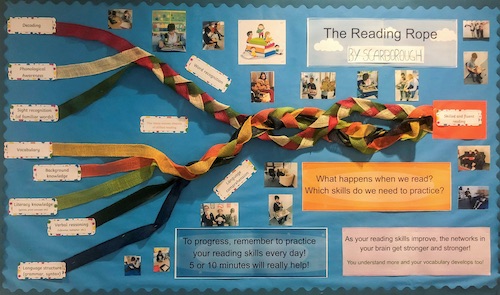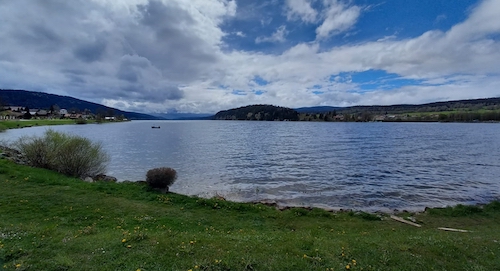Guest Blogs
Knowitall.ch often invites local experts in their field to contribute to their own blogs on our site. This means not only you will benefit from the useful recommendations that we make on our News pages, but you can also profit from some of the great advice and tips that these experts have to make on their favorite subjects. Whilst each of these bloggers has been recommended to us at some point during the evolution of Know-it-all passport and knowitall.ch, obviously we are not able to test out all the suggestions they make on their blogs, nor do we necessarily agree with all their opinions. So if you do find one of their tips useful (or not!), do let us know!
To make these blogs more accessible to you, we have now decided to group them altogether in one section, entitled Guest Blogs, accessible from our main menu bar. We will also post the most recent blogs on the home page of our site in the right hand column.
We are still building up this area of the site, and are looking for bloggers in a number of sections, including Your Home, Travel, and Leisure, so if you feel you have a useful contribution to make in either of these areas, and have the time to submit blog entries approximately every month, then please get in touch!

By Oak Hill Nyon — An individualised and research-based, half-day programme for students with dyslexia and/or AD(H)D
What is dyslexia?
Dyslexia is a specific learning difference that is characterised by difficulties with spelling, vocabulary, decoding, poor word recognition/fluency and/or comprehension challenges. It is often related to deficits in phonological and/or orthographic processing and it is estimated (Yale Center for Dyslexia and Creativity) that it affects approximately 1 in 5 of the population - including many of the young people in our classrooms. As a result, the reading demands of the secondary curriculum often require a greater amount of concentration and focus for individuals with dyslexia.
What’s different about reading in the middle years?
In secondary school, all students are introduced to greater volumes of text (as well as more complex content/vocabulary/concepts). As a result, the student with dyslexia may wonder (or despair!) why reading a play, poetry or a novel is much easier for their friends. They may also feel it is unfair that they have to work so much harder to make the same amount of progress. Perhaps parents or teachers reading this blog have heard these sorts of complaints or comments?
Whatever the situation, teenagers with reading challenges will need just as much support, encouragement, praise and understanding as they did in their primary years! Parents really do have a valued role helping their teenager engage with a text.

By Claire Doole, www.doolecommunications.com
Earlier this year I was asked to sit on an interview panel for a Director of Communications position. The organisation requested my support to reduce eight candidates down to four through a series of written and communication tests. I have helped a number of people prepare for job interviews with international organisations and companies, but I had not been in the recruiter’s chair for many years.
It was a great vantage point to assess what works and what doesn’t.
Below are ten observations based on interviewing candidates remotely:
- Prepare. It is a cliché, but preparation does prevent poor performance. I was shocked that some candidates had scant knowledge of the organisation’s vision and mission and had not thought enough about the value they could bring. Employers are looking for what you can do for them: what gaps you can fill and what problems you can solve.
- Don’t over-prepare. One candidate had obviously been privy to some confidential information and revealed it. This did not go down well with the panel.
- Be prepared to answer questions based on your tests and motivation letter. As a side note, make sure that your cover letter is a single page. It should be employer centric and make them want to read your CV. (We received one letter that was 7-pages long – not a good indication of someone’s ability to be clear and concise!)
- Give examples of what you like about the organisation’s mission, values and activities, and where it can improve.

By Katie Harwood, Haut-Lac International Bilingual School in Switzerland
The quality of private, Swiss boarding schools has been well known for many years, and still is to this day. Here’s what motivates students to study at a boarding school among the lakes and mountains in the heart of Europe.
Swiss boarding schools are family-oriented
Or, as we say in Switzerland "small is beautiful". The private Swiss boarding school tradition focuses on creating a real home away from home. The boarding solutions offered by schools like Haut-Lac International Bilingual School are developed with the students’ best interests and futures in mind.
Haut-Lac boarders find themselves studying with a maximum of twenty classmates, which enables teachers to adapt their teaching to the students' profiles so that each one has the chance to shine.
This ultimately gives students the confidence they need to find their place in society, as well as making lasting friendships.
The history of Swiss boarding schools is an international attraction
"Swiss boarding school" rhythms with prestige and status. A major advantage many families feel will greatly benefit their children as they go through life.
What’s more schools, universities and companies around the world look highly upon students with the communicative edge, open-mindedness and resilience that such an education provides. By studying in Switzerland, the home of the IB programme, students embark on a pathway that opens not one, but many doors to success in the real world for students.

By Marta Koncz, www.agateexperience.com
My favorite place to be in the French-speaking part of Switzerland during a warm summer day is Vallée de Joux; what offers a great diversity of landscapes and activities from the banks of its lakes to the summits of the surrounding mountains.
If you are a big fan of water, visiting Lac de Joux is a must! The lake is clearly a paradise of aquatics; it provides endless possibilities of water sports, such as windsurfing, water skiing, kitesurfing, canoeing, kayaking or even paddle boarding.
If you want to take it easier, you can chill in one of its well-developed beaches in Le Rocheray, L’Abbaye, Les Bioux and Le Pont. Or, if you prefer more natural ambience, discover the beaches at Lac Brenet what is considered as the "little brother" of Lac de Joux and is also ideal for gentle walks along its shore.
If you are a hiking enthusiast, you might want to climb up to Mont Tendre, the highest point of the Swiss Jura. The name of the peak means Gentle Mountain. Based on the stories I read it was named like that because it is easy to climb and ideal for beginner hikers. (I can second that)!
On the top there is a possibility to rest and refuel your energies at the Chalet du Mont Tendre.

Photo credit: Women's Economy and Society
By Claire Doole, www.doolecommunications.com
Many people I know – both panelists and audience members - are wondering what is the point of panel discussions.
This is what I am told by the senior managers, leaders and experts I have been training in various communication skills.
It seems they are often too promotional, disorganised, lack focus and fail to deliver any new insights or engage the audience. In fact the audience takeaway seems to be at the bottom of the organisers priority list for a successful panel discussion
And ignoring the audience is having consequences as organisers tell me that fewer people are showing up for virtual, hybrid or in-person panels. It would appear that post pandemic we are all suffering from a case of zoomitis and thinking twice before we tune in or turn up to an event.









